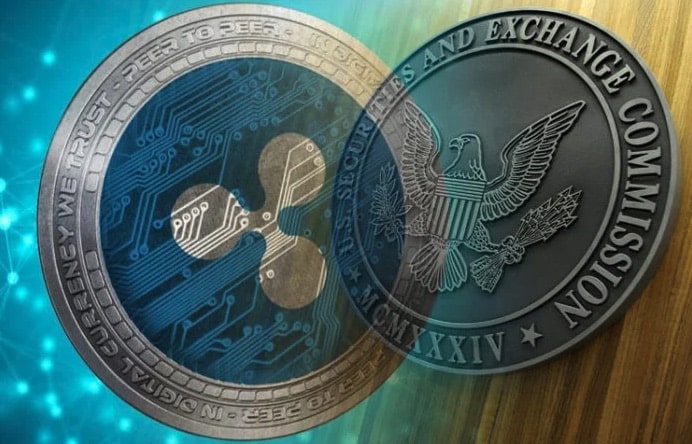San Francisco-based fintech company Ripple has been at the center of a regulatory battle with the United States Securities and Exchange Commission (SEC) for several months. In the latest twist, Ripple CEO Brad Garlinghouse took to Twitter to express his frustration and accuse the US regulator of hypocrisy. The tweet sparked a heated debate on social media, further intensifying the ongoing legal and public relations battle between Ripple and the SEC.
The conflict between Ripple and the SEC began in December 2020 when the regulatory body filed a lawsuit against the company, alleging that it conducted an unregistered securities offering worth $1.3 billion through its digital asset XRP. The SEC argued that XRP should be classified as a security, while Ripple maintained that it was a digital currency similar to Bitcoin and Ethereum.
Ripple CEO calls out SEC’s inconsistent communication and hypocrisy
Ripple CEO Brad Garlinghouse has taken aim at the U.S. Securities and Exchange Commission (SEC) over what he perceives as inconsistent public communication. In a recent tweet, Garlinghouse called out the regulator’s hypocrisy, joining a chorus of voices questioning the SEC’s approach to cryptocurrency regulation. The Twitter spat comes shortly after Coinbase’s Chief Legal Officer, Paul Grewal, posted a detailed thread on Twitter, highlighting the SEC’s response to Coinbase’s request for clear guidelines on cryptocurrency regulation.
On Tuesday, Garlinghouse took to Twitter, posting a meme from the popular TV show The Office featuring a bewildered character. Accompanying the meme was a pointed message directed at the SEC, expressing his sentiments.
“Ah, the hypocrisy to be an unelected bureaucrat – where you can prognosticate on your bully pulpit at all times (every week a new video or speech!) and then say no one should rely on your statements as guidance…”
Frustration with SEC’s lack of clarity and reliance on enforcement actions
Garlinghouse’s tweet mirrors the increasing exasperation felt by leaders in the crypto industry, who argue that the SEC’s ambiguous stance is impeding the growth of the sector. Grewal’s Twitter thread shed light on the SEC’s acknowledgment that enforcement actions are being employed as a substitute for clear regulations in the near future.
Garlinghouse responded to the regulator’s statement by highlighting what he saw as a hypocritical stance. In a tweet, he pointed out the irony of being an unelected bureaucrat who frequently delivers speeches and videos yet claims that his remarks should not be regarded as official guidance.
Crypto industry seeks regulatory clarity
In light of the SEC’s legal action against Ripple on allegations of securities violations, the crypto industry has been actively advocating for increased regulatory clarity. In a recent development, legal experts from Ripple and Coinbase convened in an offsite meeting to address critical concerns within the crypto space. Stuart Alderoty, a representative from Ripple, expressed gratitude for Grewal’s involvement, while Grewal proposed the idea of holding more frequent meetings in the future, showcasing a mutual desire for ongoing collaboration.
The SEC’s handling of Coinbase’s petition, along with Garlinghouse’s critique, highlights the ongoing friction between the crypto industry and regulatory authorities. Grewal emphasized in his Twitter thread that the industry is grappling with a lack of clarity regarding the SEC’s jurisdictional boundaries, a circumstance he anticipates will persist in the foreseeable future.
The Twitter exchange between Ripple CEO Brad Garlinghouse and the U.S. Securities and Exchange Commission (SEC) highlights the growing frustration within the crypto industry regarding regulatory inconsistencies. Garlinghouse’s accusations of hypocrisy and the SEC’s response to Coinbase’s petition underscore the need for greater regulatory clarity. The lack of clear guidelines and jurisdictional boundaries inhibits the industry’s growth and hampers innovation.
As the legal battle between Ripple and the SEC continues, the outcome will have significant implications for both entities and the broader regulatory landscape of digital assets. Achieving a balanced approach that promotes investor protection while fostering technological advancement remains a crucial challenge for regulators in the evolving crypto space.
Also Read: Leaked memo exposes United States democrats’ organized anti-crypto stance.











